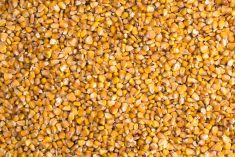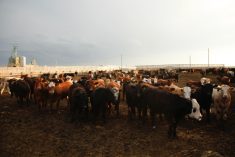MarketsFarm — Higher prices for feed grains in Western Canada are expected to stay that way, according to a trader in Alberta.
Erin Harakal, senior trader for Agfinity at Stony Plain, Alta., said factors such as increased demand overseas and depleted domestic stocks will continue to keep prices elevated for feed grains. While she doesn’t know when prices will start to taper off, that day could come soon.
“I don’t know how much longer (prices) will last at these levels, especially going into the feedlots. It just seems some of the buyers might be getting full for grains in the coming months,” she said.
Read Also

Alberta crop conditions improve: report
Varied precipitation and warm temperatures were generally beneficial for crop development across Alberta during the week ended July 8, according to the latest provincial crop report released July 11.
“As of right now, (prices) have been holding their own for the last little bit… As we get closer to the new crop, they will probably come off. But as of right now in the spring, I think they will stay where they are for the time being.”
As of Wednesday, high-delivered bids for feed barley in Alberta were at $7.08 per bushel, compared to $5.71 in Manitoba and $5.75 in Saskatchewan — all at least $1.56 higher than last year, according to Prairie Ag Hotwire data.
Feed wheat is trading for as high as $8.65/bu. in Alberta, compared to $7.75 in Manitoba and $7.25 in Saskatchewan, $1.50 or more higher than at this point in 2020.
Elevator demand for exports to China is at lower-than-normal levels, Harakal added, and feedlots selling their cattle before summer could affect pricing. However, she does not expect any upcoming changes to current overall demand.
“I don’t think there will be too much of a shift in price. We’ll be seeing normal demand as in previous years,” she said.
Feed barley and feed wheat are making their way to feedlots, with the former experiencing strong demand from buyers. Oats have also been purchased as feed for cattle, but not at the same quantity as the other feed grains, according to Harakal.
“I don’t think we’re going to have any (feed grain) supply issues from what we’re seeing as of right now,” she said.
— Adam Peleshaty reports for MarketsFarm from Stonewall, Man.
















